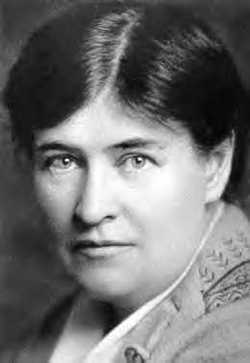 We all remember the
catchy little tune from School House Rock. Conjunction Junction,
what's your function? Hookin' up words and phrases and clauses.
We all remember the
catchy little tune from School House Rock. Conjunction Junction,
what's your function? Hookin' up words and phrases and clauses.
… or maybe that's
just me, showing my age ...
And, But, and Or
will get you pretty far!
Yes, that's true.
But it's probably not exciting to read. Consider the following:
The noise startled
me and I ran for the door and I picked up my handy ax!
Linking all these
actions together makes the reader do a whole bunch of work.
Additionally, cramming all that into one sentence slows the pacing
down. This is danger! This is potential disaster! You can convey that
to your reader with small, tight sentences.
The noise startled
me. I ran for the door. I picked up my handy ax!
Little sentences,
easy and quick to read, pick up the pace, adding to the emotion of
the passage. Now your reader not only senses the excitement and drama of the
situation, they're part of it.
Frankly, we -- as conversationalists -- use conjunctions. A lot. Many people use “and”
as a filler word, said when they want to keep talking but they
haven't found the words yet. It's right up there with “um” and
“like” and “so”. Record a conversation sometime and see for
yourself! At times, we string together all sorts of sentences that
have no real link between them. But whoever you are talking to
doesn't notice that since they're probably doing it, too.
Most of us write as
we talk, just streaming out the words and actions and information as
quickly as they come into our head.
AND
Occasionally things
really should be linked together, and “and” seems reasonable.
Sure. That's fine.
Nothing exciting really going on, so no reason to shorten that up.
However, it's not really interesting either. It reads more like
blocking, directing the actor's movements (he walked, he stared). How about:
He walked to the
window, staring out into the flowery field.
This seems softer,
more humanly and less robotic.
Another crime (and I
do it ALL the time, ask my editor) is start sentences with “and.”
I always say
“Please.” And “Thank you.”
In the case above,
you can make an argument that a character is speaking. The thought of
“and thank you” came later so they simply added it. Also, using "and" to indicate math, or more than one individual, is also fine.
Two and two are four.
He and his dog went for a walk.
There are times, however, when starting a sentence with “and” forces to reader to do
the addition.
He liked many of the
weapons in the display case. And he preferred the ones with wooden
handles.
He liked many of the weapons in the display case, especially the ones with wooden handles.
Consider it a red flag -- double check your work for sentences starting with "and."
BUT
Starting sentences
with “but” isn't uncommon (I've done it already in this article),
however it can be overused quite easily. You're better off looking
for them, then changing them to “however”, or “on the other
hand”, something more insightful and clever. Keep in mind,
alternatives can help with pacing.
She always wanted a
pony. But never thought that day would ever come.
She always wanted a
pony, yet never thought that day would ever come.
She always wanted a
pony. However, she never thought that day would come.
OR
“Or” is an
option. This or that. Here or there. As a result, it's rarely used
incorrectly since, frankly, we don't often have options.
All he had to do was
take the sword from the stone ... or go home, put his feet up by the
fire, and enjoy a cappuccino.
 How to fix this? A
dedicated edit in your work. Search for the word “and,” “but,”
and “or” and see how many times you've used them. Yes, each and every
one. Eliminating or changing these small words can have major impacts on your work!
How to fix this? A
dedicated edit in your work. Search for the word “and,” “but,”
and “or” and see how many times you've used them. Yes, each and every
one. Eliminating or changing these small words can have major impacts on your work!
Coming next, Part 3
– Favorite Words, Mine... not yours!





